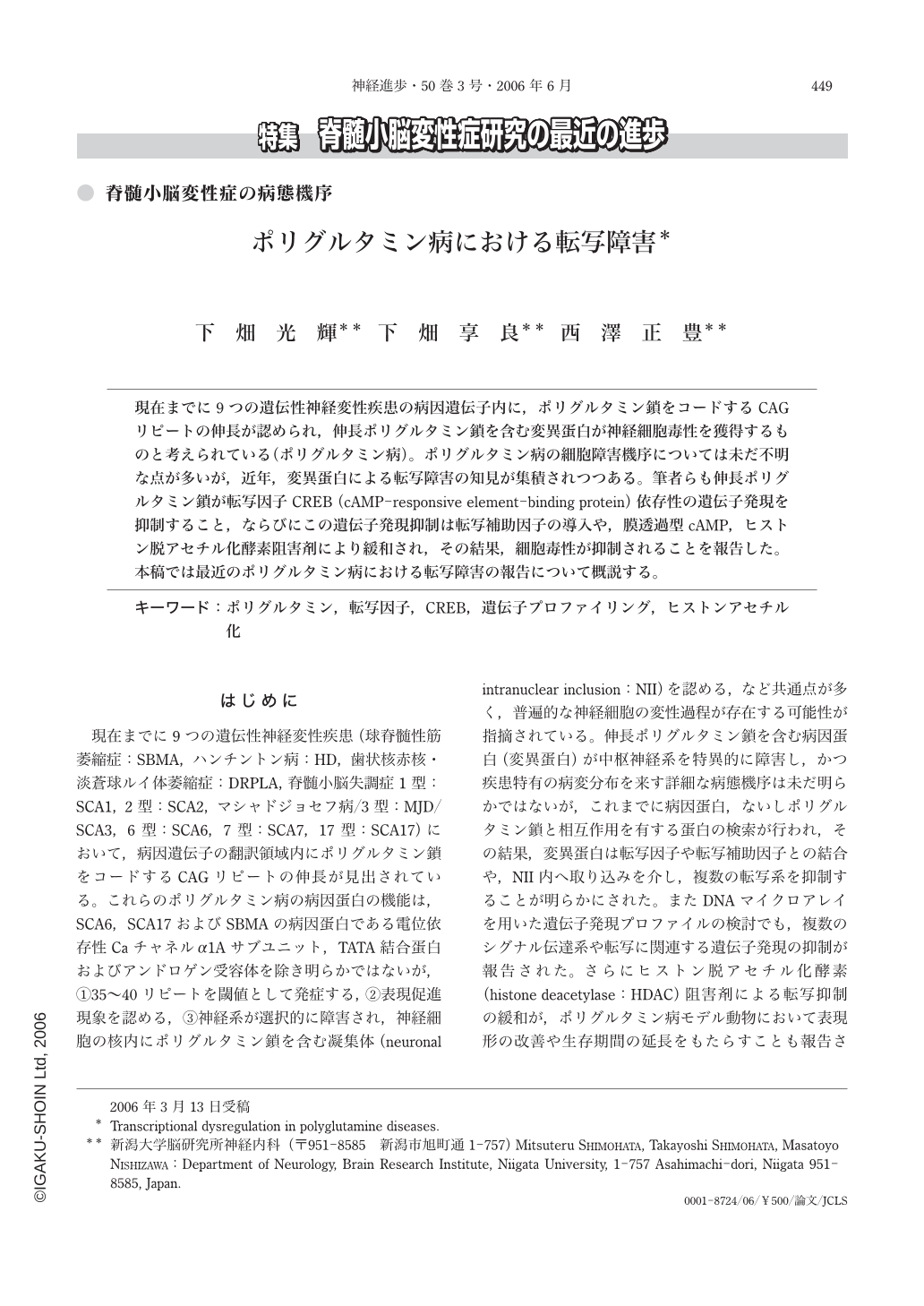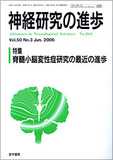Japanese
English
- 有料閲覧
- Abstract 文献概要
- 1ページ目 Look Inside
- 参考文献 Reference
現在までに9つの遺伝性神経変性疾患の病因遺伝子内に,ポリグルタミン鎖をコードするCAGリピートの伸長が認められ,伸長ポリグルタミン鎖を含む変異蛋白が神経細胞毒性を獲得するものと考えられている(ポリグルタミン病)。ポリグルタミン病の細胞障害機序については未だ不明な点が多いが,近年,変異蛋白による転写障害の知見が集積されつつある。筆者らも伸長ポリグルタミン鎖が転写因子CREB(cAMP-responsive element-binding protein)依存性の遺伝子発現を抑制すること,ならびにこの遺伝子発現抑制は転写補助因子の導入や,膜透過型cAMP,ヒストン脱アセチル化酵素阻害剤により緩和され,その結果,細胞毒性が抑制されることを報告した。本稿では最近のポリグルタミン病における転写障害の報告について概説する。
At least nine neurodegenerative diseases are known to be caused by expanded CAG repeats encoding polyglutamine(polyQ)stretches. Although cytotoxicities of expanded polyQ stretches have been suggested, the molecular mechanisms of neurodegeneration remain unclear. In previous work, we demonstrated that the transcriptional activation of endogenous CREB-dependent transcription was strongly suppressed by expanded polyQ stretches in a polyQ length-dependent manner, and this down-regulation of CREB-dependent transcriptional activation was reversibly restored. We further demonstrated that polyQ-induced cytotoxicity was abrogated by enhancing endogenous CREB-dependent transcription by increasing cAMP concentration as well as by a histone deacetylase inhibitor. These findings emphasize the augmentation of transcriptional activation as a potential therapeutic strategy for polyglutamine diseases. In this article, we reviewed the recent research papers related to transcriptional dysregulation in polyglutamine diseases.

Copyright © 2006, Igaku-Shoin Ltd. All rights reserved.


